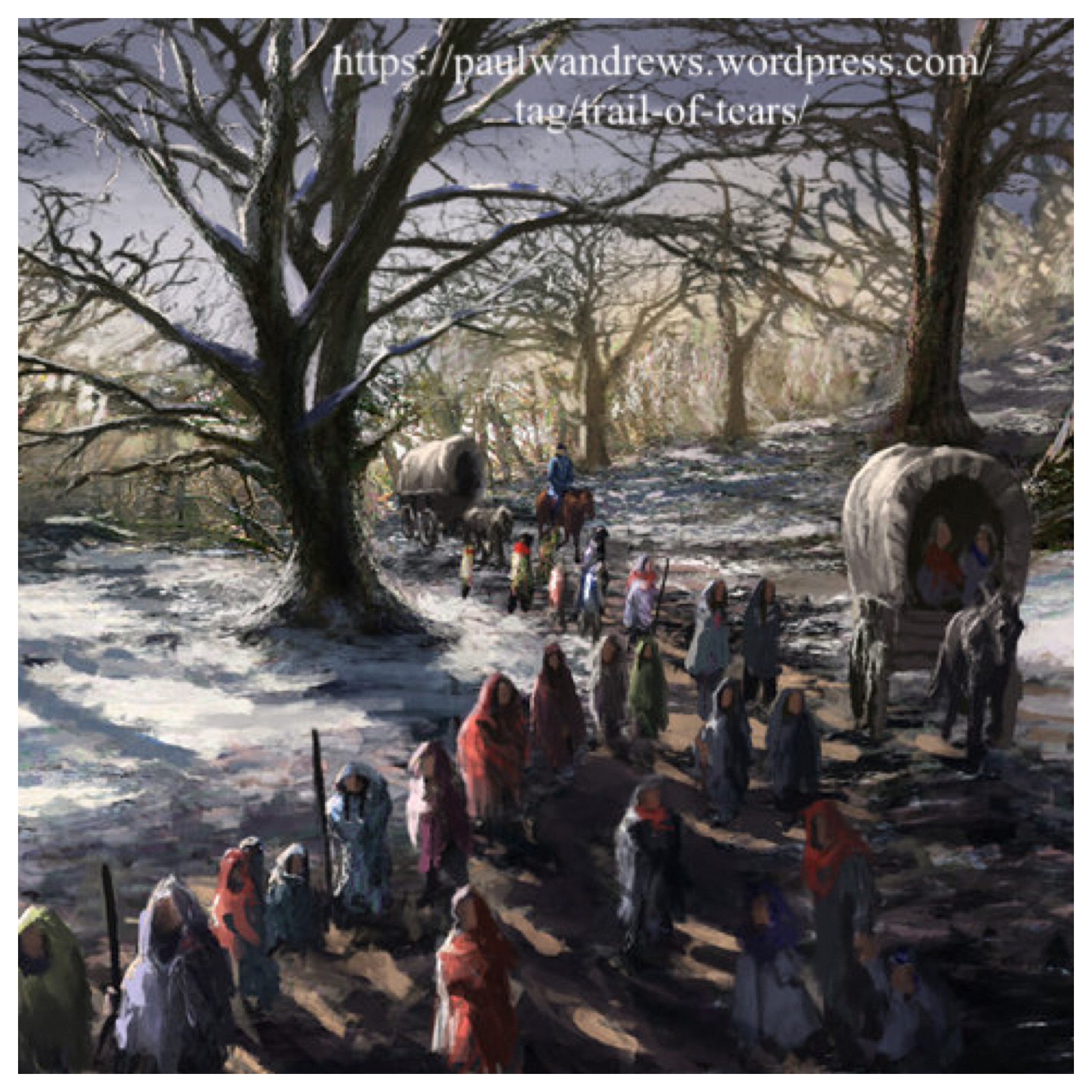In March, the National Museum of American Indians had an event called "Finding Common Ground" that looked into the intersectional history between African Americans and American Indians. History is a fickle thing. It isn’t always full of happy things and really in many cases there are many more events that are deemed unimaginable than not. During this event one of the things discussed was the Trail of Tears and the little known fact that Native Americans, mainly Cherokee, were slave owners who took their slaves on the trail with them.
Who wasn’t taught the story the Trail of Tears?
Who wasn’t taught the story the Trail of Tears? President Andrew Jackson pushed the Indians across the Mississippi so white slave owners could expand their plantations. 11,000 Indians died during this forced removal. The Cherokee Indian Chief John Ross fought to keep his people's property and went to the White House many times. However, they lost the battle and were forcibly moved. Yet, these five "civilized tribes," the Cherokee, Chickasaw, Choctaw, Creek and Seminole, were slave owners. Having been enslaved themselves you would think they would join forces with the black slaves but instead, according to Paul Chatt Smith the museums curator, "The Five Civilized Tribes were deeply committed to slavery, established their own racialized black codes, immediately reestablished slavery when they arrived in Indian territory, rebuilt their nations with slave labor, crushed slave rebellions, and enthusiastically sided with the Confederacy in the Civil War."
An African-American historian at the University of Michigan, Tiya Miles, talked about how Indians and African Americans were slaves for about 150 years together but then "Increasingly, where white colonists viewed Africans as little more than mindless beasts of burden, they saw Native Americans as something more: "noble savages," unrefined but courageous and fierce." Then because the government wanted the Native Americans to prove they were civilized, Miles says, "slaves became tokens of economic success. The more slaves you owned, the more serious a businessperson you were, and the more serious a businessperson you were, the fitter you were to join the ranks of "civilized society."
We need to remember.
If there is anything we need to learn from history, we need to remember, it is messy, it is complicated, and it is something we need to know and we need to learn from. According to Smith the best way to handle confronting this kind of history is this quote from "African anti-colonial leader Amílcar Cabral: 'Tell no lies, and claim no easy victories.'"
To read more of this story visit SmithsonianMag


